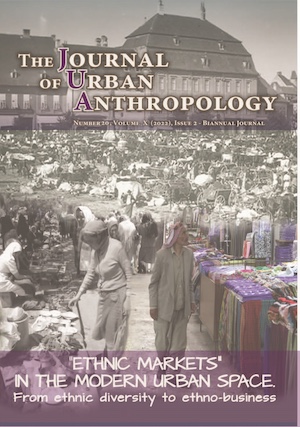Xanthi’s bazaar: historical approach and ethnographic experience of a local market and its culture
Xanthi’s bazaar: historical approach and ethnographic experience of a local market and its culture
Author(s): Aikaterini (Katerina) MarkouSubject(s): National Economy, Economic history, Cultural Anthropology / Ethnology, Ethnic Minorities Studies, Socio-Economic Research
Published by: EDITURA OSCAR PRINT
Keywords: Thrace; bazaar; materialities; value; haggling; multiethnicity; multilingualism;
Summary/Abstract: The paper aims to present a socio-economic and cultural event, the bazaar of Xanthi,the operation of which is linked to various local identities and the glocalized processes that permeate the world of the bazaar. Initially, an attempt is made to examine the bazaar’s evolution within Xanthi’s changing urban space from the end of the 19th century to the present day. We will also focus on the multitude of relationships that connect different types of people with their products, conserving a traditional multiethnic atmosphere in interaction with the consumerism of the current global context. A bazaar is a place of extreme mobility of people, identities and goods. It is where people, goods, different languages, and ethnic and religious identities intersect to create a dynamic mosaic which reconciles the heterogeneity of needs and interests. In economic terms, the bazaar is a market with low priced products where the value of products changes depending on the cultural context of the communicative exchanges. Furthermore, the bazaar is a performance scene where multilingual speakers transform the place into a linguistic laboratory and a significant cultural capital of the region. This paper is based on historical photographic material and field research with long participant observation in the bazaar, where the centrality of the city shifts to every Saturday.
Journal: THE JOURNAL OF URBAN ANTHROPOLOGY
- Issue Year: 10/2022
- Issue No: 20
- Page Range: 116-132
- Page Count: 17
- Language: English
- Content File-PDF

